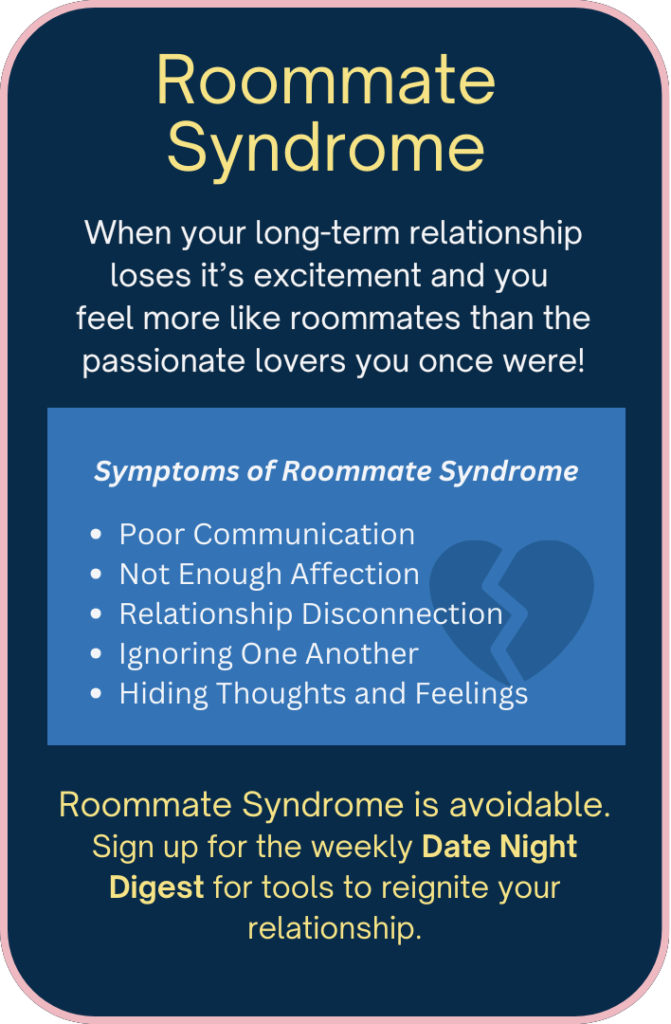
According to Psychology Today, a whopping 80% of couples struggle with desire discrepancy. That’s when one partner wants sex more often than the other.
Since it’s so pervasive, I’m guessing that you have some experience with the problem. Do you have any wisdom to share?
No? This makes you like most other couples, too. Despite how troubling it can be, most couples have a hard time finding solutions. Desire discrepancy causes disappointment, frustration, anger, unhappiness, conflict, disconnection, and a host of other problems. Too often, it leads to a sexless marriage or is a factor when a relationship fails.
There are a variety of reasons why desire discrepancy happens. Preference, stress, fatigue, health, hormones, relationship issues, boredom, mental health, trauma, and beliefs all play a part.
You may have missed early signs when you started dating. Many couples believe that they are on the same sexual page because they want it equally in the beginning. This is unfortunate for many couples. When a relationship is new, our brains are doused chemicals that increase desire. They usually wear off by 18 months into the relationship. Which is long after many couples have committed to one another.
Changes in our bodies as we age also play a huge part. As hormone levels change and our bodies follow the inevitable path of aging, one or both partners can see dramatic changes in their desire.
Bored, anyone? If you are doing the same things you’ve always done, it’s possible that isn’t enough anymore. As humans, we crave both security and novelty. Desire discrepancy shows up when one of you feels satisfied and the other wishes for more.
For many people, sex is a vulnerable and uncomfortable topic under the best of circumstances. When they experience differences, most couples avoid talking about them. It’s too embarrassing, or they hope it will go away on its own. In silence, the problems quickly multiply.
It’s not all bad news. You have quite a few options when deciding what to do about it.
Desire Discrepancy: solving the problem
Desire discrepancy doesn’t have to lead to endless conflict or disconnection. You have a lot of options when it comes to improving the situation. Here are a few:
1) Enlist your partner as an ally rather than your enemy.
This is a joint problem. You are in this boat together. You will sink or sail together. Engage your partner in productive, open-minded dialogue.
2) Redefine sex.
Most couples define sex as intercourse. That’s all there is, right? Wrong. The sooner you redefine sex as intimacy, the happier you will both be. Intimacy includes all the activities that you and your partner find pleasurable, connecting, and that build desire. More on this in the next solution.
3) Seek pleasure.
Be curious and open. That doesn’t mean you’re going to end up doing things you don’t want to do. There’s still a lot of good things to experience. Ask questions such as:
- Do you like this? How about that?
- What gives you great joy?
- What makes you feel complete?
- How has desire changed for you in the past year?
- What’s fun to think or talk about?
4) Solve the other problems in your marriage.
Other problems creep (or storm!) into the bedroom. If you haven’t worked out how to share the workload or you argue often, it can kill the desire in the relationship. Hurt feelings and disappointments are hard to put aside to be close. Resentment is particularly toxic to love. When you improve the rest of the relationship, intimacy often returns.
5) Make it safe to be vulnerable.
Intimacy is all about being vulnerable. That’s almost impossible unless you also feel safe. A relationship can feel unsafe due to physical or emotional issues. Seek ways that make your partner feel safe and ask for changes that help you.
6) Be honest but kind.
It is counterproductive to keep something to yourself to spare your partner’s feelings. You can’t fix problems that you don’t know about. It also backfires when you bluntly tell them what you think without considering the impact on them. When either of you feel criticized, blamed, or attacked, the part of your brain that solves problems shuts down. The trouble is, if you don’t know what your partner is thinking, it doesn’t mean they aren’t thinking it. You just don’t know that they are thinking about it.
7) Be curious about your partner.
Without making it about you, find out what is happening for your partner. What is their relationship with sex? What’s affecting their drive and desire? What can stay on the table even if intercourse is off? There are a million questions that will help you understand what is happening for them. Understanding is the first step to finding satisfying solutions.
8) Solve problems about sex the way you would any other relationship dilemma.
What is the problem you’re trying to solve? Frequency, desire, roadblocks, excitement, energy, health? Is it permanent and temporary? What are the other ways that you can solve this problem? Look for new ways to both feel satisfied.
9) Strengthen your relationship with “yes” and “no.”
Most couples believe problems are destructive to relationships. It’s also an opportunity to make the relationship stronger. Say “yes” as often as possible to as many things as you can. When you say “no,” do it with kindness and offer an alternative. Ask your partner how you can say “no” and still make them feel loved.
10) Read Come as You Are by Emily Nagoski.
This is THE BEST BOOK! It’s a how-to book on sex and intimacy. In fact, I read it in my 40s and learned a tremendous amount about myself and my partner.
11) Seek professional help.
Get a physical first, then see a psychotherapist. To effectively deal with sexual issues, find a professional with specialized training. It’s surprising how few couples therapists feel comfortable dealing with sexual issues. Whoever you choose, make sure that they are at ease when the topic of sex comes up.
The most important thing is to keep going. In a committed relationship, you are playing the long game. There’s time to explore options, be thoughtful, and use the problem to make your relationship better.
Words Matter
Hearing “no” is hard, no matter how old you are. Especially when it’s something that feels vital to your well-being. Here are some specific suggestions so you can try something new.
Don’t beat around the bush, but also say “no” in a way that says “I love you.”
Example:
“I’m not up for sex tonight, but I’d love to get a good hug.”
“I know you’ve asked to mess around a few times. I’m working on making more space for it.”
“I’ve got to finish up these projects tonight so I’ll feel more relaxed and present with you this weekend.”
“If you split this list of chores I need to finish, I will have a little extra time to curl up with you.”
When you use one of these suggestions, pay attention to how it lands. If your partner reacts poorly no matter how carefully you word it, ask them how they will hear it best.
Does it help to know that you are in the same boat as everyone else? Maybe, maybe not. It feels desperate because it’s about sex. Continue working on it. This difference in your marriage is probably not going to go away. But there are good solutions.
We specifically talk about issues with intimacy in the Facebook Date Night Community. Join us!



